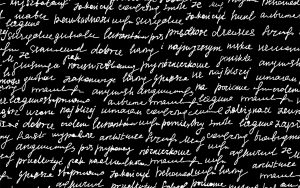Globalization processes lead to the establishment of international relations. The world economy, trade, tourism, the Internet, social networks, population migration – all this presupposes active interaction between people of different cultures and nationalities. To understand each other, for example, in the process of negotiations, the parties will help to contact our translation agency. There are different languages and different types of translation: oral, which can be simultaneous or sequential, and written (technical, artistic and abbreviated).
oral, which can be simultaneous or sequential, and written (technical, artistic and abbreviated).
Why is an abstract (abbreviated) translation needed?
Due to the avalanche growth in the world of publications on various scientific, technical, economic, political and other topics, all these texts are simply impossible and even inappropriate to translate into all languages. But then there is a danger of missing something important. That is why an abstract translation acquires such significance, which allows in a concise form to convey to the reader the meaning of the text, to briefly formulate the sentences, key thoughts and conclusions of the author. In this case, the translator is responsible for the main work of analyzing the content, isolating the most important fragments, coordinating them, structuring and presenting them in a fo

rm convenient for the end user. In the scientific and technical sphere, a whole industry of highly specialized journals has been formed, which not only carry out technical translations, but also abstract publication
s in print and electronic editions in order to promptly bring to specialists all relevant information on issues of interest in specific areas of knowledge. This greatly facilitates the search for the necessary data, frees scientists from routine work, and saves time and money.
It should be noted that such texts are many times more laconic than the original sources, so they cannot give an exhaustive answer to all the reader’s questions. But such a task is not posed. Having received the basic information from a brief but meaningful annotation, the specialist himself can draw the necessary conclusions in order to then find the necessary article and begin to study it thoroughly or ignore it.



